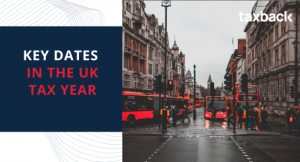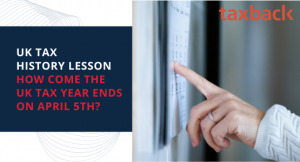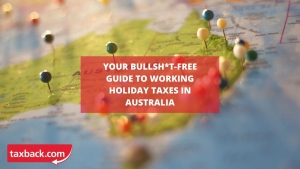How Will Brexit Affect UK Taxation?
How will Brexit impact the Uk's taxation policies?
Following the Leave victory in the UK referendum on its membership in the EU on 23 June and the Prime Minister’s subsequent resignation, HM Government will be in disarray for the next 3-4 months. Parliament will attempt to regain control of a chaotic situation with no visible short or long-term plans in terms of UK taxation and its economic policy.
In terms of the effect of Brexit and taxation, most UK tax legislation is imposed by UK law and operated in accordance with EU law, whereas VAT is both imposed and operated in accordance with EU law. So, if there are any significant changes in UK taxation policy it could well stem from VAT (indirect taxation) as opposed Income Tax and National Insurance (direct taxation).
With so much political and economic turmoil, it’s not yet clear what the effect will be across all spectrums of taxation; Personal Tax, Corporate Tax, VAT, Stamp duty, etc.
Our current views of the both the current position and what lies ahead are as follows:
Short-term
The biggest question mark for tax professionals is the long-overdue Making Tax Digital consultation, which will be put on the back-burner with Whitehall having a lot more to contend with following Brexit.
Will the Chancellor’s ambitious plans to phase in digital personal taxation from 6 April 2017 be pushed back to a later date?
It’s understood the referendum has already held up 40 pieces of tax legislation. We’ll probably have to wait until the new Cabinet is in place before any form of guidance/time frame appears in terms of the government’s digital taxation proposals and the other pending UK taxation issues already in question.
Medium-term
During the referendum campaign, the Chancellor indicated in an “illustrative Budget” that an anticipated £15bn of tax rises and £15bn spending cuts would occur if there was a Remain vote.
This “budget” suggested rises in income tax and national insurance. The measures outlined in the Remain campaign budget included a 2p rise in the basic rate of income tax, a 3p rise in the higher rate, and a 5% inheritance tax rate to 45p.
However, the Leave campaign gave no firm predictions over its own taxation policy so it’s not possible to say if the UK will press ahead with these or other changes to UK taxation.
Long-term - the future of VAT
The process of “divorce” from the EU is likely to begin in late 2016, continuing to late 2018 so in the short to medium-term, tax and regulations tied to European law - VAT, for example-won’t change.
Changes on the VAT on domestic fuel were promised by the Leave side, but these are unlikely to happen as VAT is one of the most efficient taxes and collects £115bn a year for the UK government.
Ultimately, the VAT rate could even go up as it is relatively easy to implement changes to the VAT headline rates. The UK will be free to extend the scope of zero rating and exemptions from VAT without having this rubber stamped by the EU.
Intrastat returns will cease to apply at the point the UK leaves the EU; all sales into and from EU countries will be exports and imports, not intra-EU movements, and will be subject to a different VAT treatment and VAT on expenses incurred in other EU countries may be more difficult to recover.
Article 50
There has been a lot of discussion on “Article 50”, which is basically the provision of two years notice to the EU that the UK wishes to exit. This clearly has a knock-on effect on the timing of when Brexit will actually take place and when any changes to taxation will occur.
David Cameron had previously said that Britain would immediately invoke Article 50 – but the uncertainty of his own position calls this into question. If he is replaced by a pro-Brexit candidate he or she will likely argue that Article 50 works against the interests of the country leaving the EU. The new PM may seek a period of informal negotiations first.
As mentioned above, if there is one clear trend that emerged over the weekend, it is the desire of many European leaders to see Brexit happen quickly. They fear that an amicable, drawn-out settlement would simply encourage other countries to seek their own version of Brexit.
David Cameron is due at a European summit on Tuesday, so he can expect to hear ‘just get on with it’ in several different languages.
In these uncertain times it’s difficult to foresee what lies ahead in the UK in terms of tax and social security. However in the ever-changing world of politics and taxation, this is not a completely new position for tax advisors and we’ll continue to guide our clients and partners through changing times as we have done successfully in the past.
If you need help with your UK taxes, Taxback.com can help you file your tax return and claim your tax refund.




